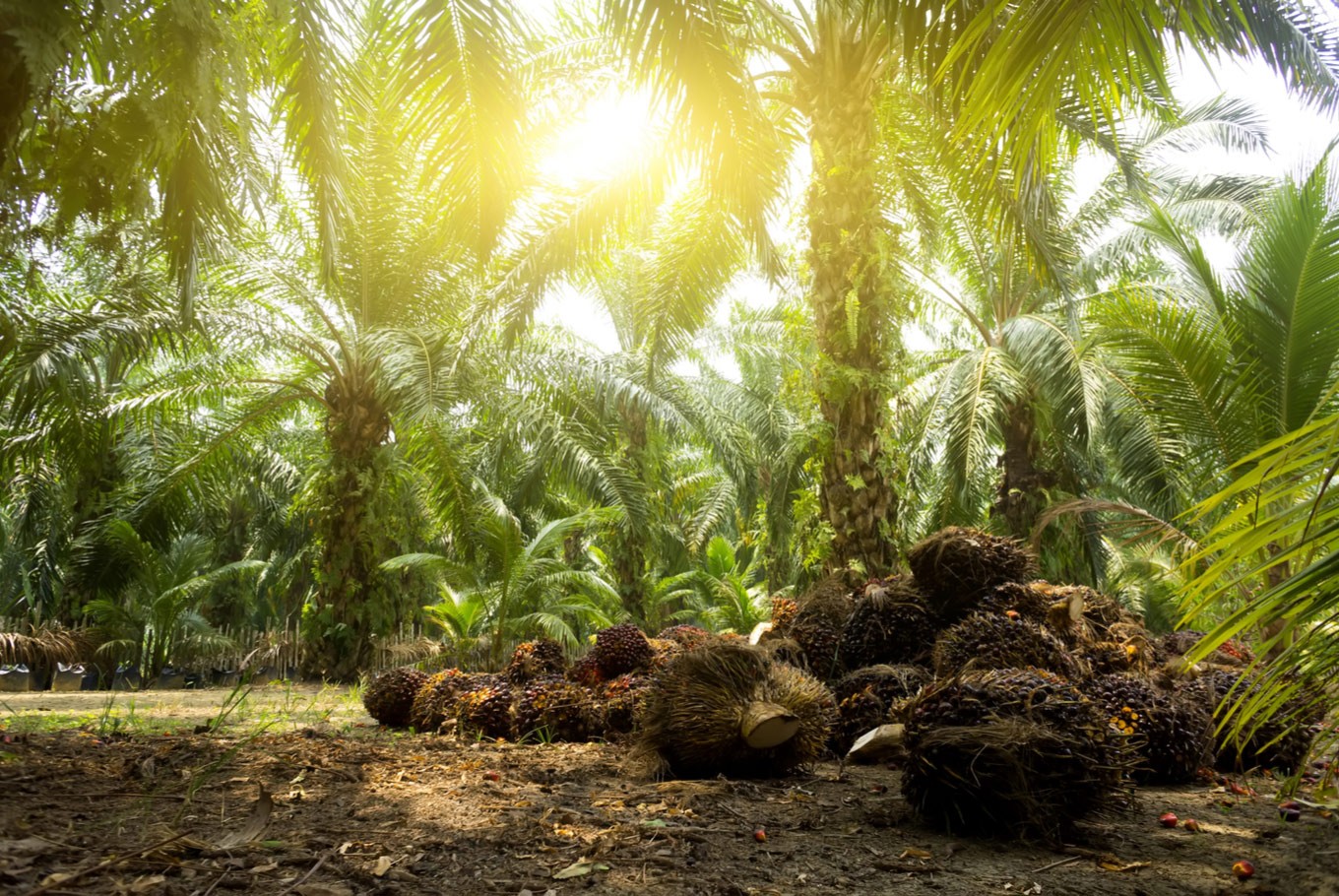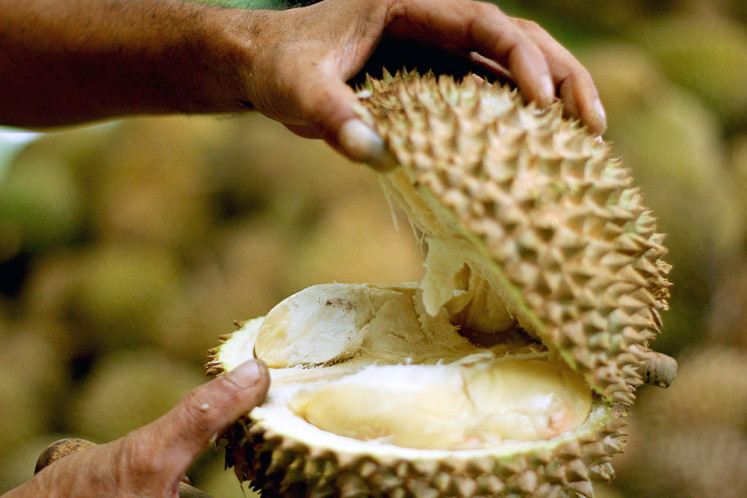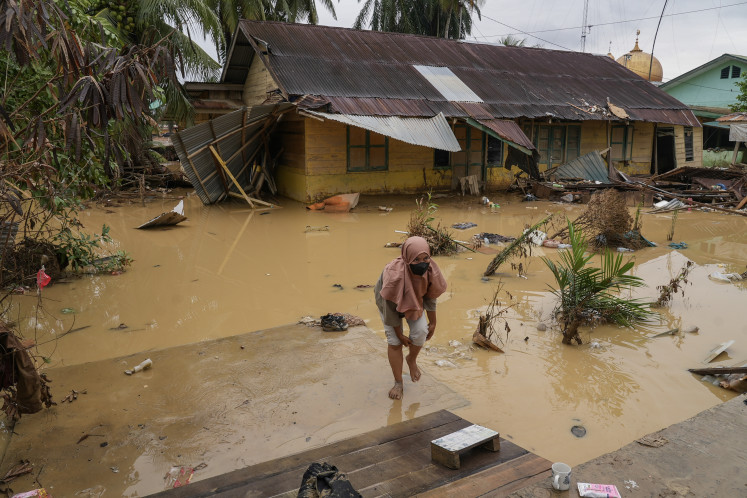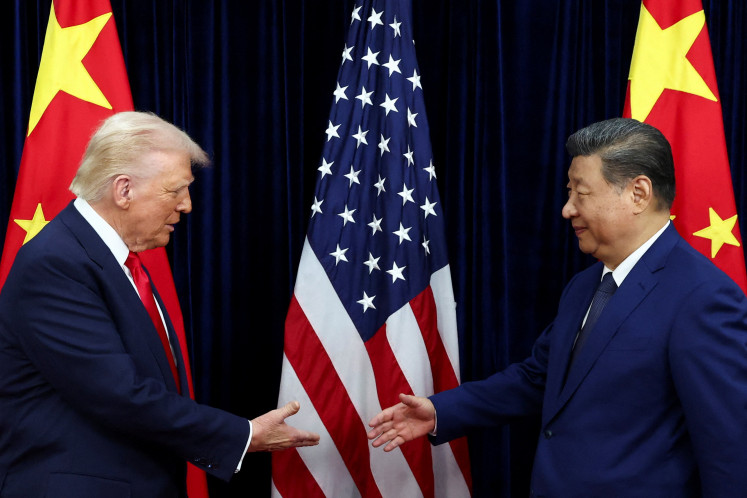Popular Reads
Top Results
Can't find what you're looking for?
View all search resultsPopular Reads
Top Results
Can't find what you're looking for?
View all search resultsPalm oil, hailed but neglected in Indonesia?
Change text size
Gift Premium Articles
to Anyone
A
centennial after the Dutch began commercially planting oil palm in its then colony which is now known as Indonesia, the crop has become the country’s top foreign exchange reserves contributor, a source of livelihood for some 17 million Indonesians, and helped to improve the lives of millions.
It saw a drastic development in the 1980s and 1990s and by 2018, the national palm oil output had reached a record 43 million tons, of which 34.71 million tons were exported. Palm oil brought in US$20.5 billion in foreign exchange last year, contributing around 2.46 percent to the Indonesian economic growth in 2018.
But the golden goose appears somewhat neglected. Caged, exploited but not resting on soft cushion nor lavishly cared for and fed.
For a top non-oil and gaze foreign exchange earner in the last three years, the Indonesian palm oil sector is still handled in a highly segmented way.
Although the government comes out with policies in favour of the development of the palm oil sector, there are a profusion of institutions, including several ministries and regional administrations, that are coming out with their own regulations and laws, often in complete disregard of the other institutions.
Palm oil has not been accorded the luxury of having a coordinating body or regulator at the national level. To everyone their own business.
No wonder efforts at promoting palm oil overseas, at parrying attacks and black campaigns against the crop from overseas as well as from within the country, have remained mostly ineffective.
No wonder good-intentioned policies, such as the government’s replanting programs as part of the efforts to boost productivity among smallholder planters, are failing to reach their targets in the face of the many unaddressed obstacles on the field.
No wonder the rapidly rising national palm oil output has widely outstripped the development of domestic consumption, with the downstream sector vastly ignored until the surplus had begun to become unbearable.
No wonder concessions are often overlapping with each other, or are encroaching into areas where they should not be, as they were doled out without a proper coordination and in the absence of nationally-recognized map, or sufficient database.
No wonder schemes to develop the sector, especially when concerning smallholders, are stumbling on obstacles that have actually long been identified but have failed to be addressed in the absence of any cross-sectoral authority.
And the list of no wonder can continue.
Isn’t it time to properly treat the country’s golden goose accordingly? Shouldn’t there be a well-coordinated, body at the national level that would be able to not only harmonize the various polices and regulations related to oil palm and its products, but also override narrow-minded local interests for the good of the nation?
Such an supra-institution would have the task of coordinating, synchronising and facilitating the planning and development of the palm oil sector and function as a regulator and formulator of the national operational strategy for the development of the sector at home and for dealing with criticism and attacks from overseas. It should be the one producing the masterplan, the blue print, the grand design for the sector.
By forming a united front at home, Indonesia will also be in a stronger position to impose its will in the international palm oil environment. With a united front at home, the country could speak in one firm, voice. At present, even its representation in international palm oil bodies have also been minimal despite of its top palm oil producer’s status.
At present, it does not even have its own directorate general that can focus on palm oil. Oil and gas does have one. Its downstream sector has remained without guidance in the absence of a national body such as the Oil and Gas Downstream Regulatory Agency.
The need for this national coordinating institution, whatever its form, is all the more important considering the rising role of smallholders in the industry. Unlike in the oil and gas sector which is dominated by corporations, the palm oil sector has also to deal with a heterogenous smallholder element which would need better tailored but harmonized management.
There is no doubt that demand for oils, vegetable ones such as palm oil, will continue to rise in the future. With oil palm recognized as the most efficient oil producing crops, its future should be assured. But unless we get our act together, we may just miss the boat.
***
The writer is a content manager at The Palm Scribe, a bilingual online platform for discussion on sustainable palm oil.










